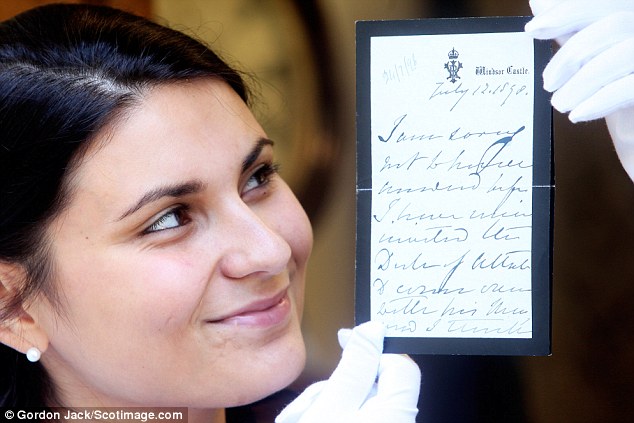The interaction between Bahá’u’lláh and Queen Victoria extends beyond mere historical correspondence, offering profound insights into the principles of the Bahá’í Faith and the broader context of international relations during the late 19th century. One might ponder: How did a 19th-century Persian prophet manage to capture the attention of one of the world’s most prominent monarchs? This question not only encourages a deeper exploration of Bahá’u’lláh’s teachings but also presents a challenge: Can we comprehend the implications of this correspondence in our contemporary society, which often flits between digital communication and superficial connectivity?
To fully appreciate the context of Bahá’u’lláh’s letter to Queen Victoria, it is pertinent to delve into the historical backdrop of the time. The Bahá’í Faith emerged in an era marked by tumultuous political upheaval, social strife, and the quest for justice and equity. In sum, Bahá’u’lláh advocated for universal peace, justice, and the oneness of humanity, concepts that were revolutionary and extraordinarily relevant in the context of colonialism and imperialistic expansion. The mere act of writing to a sovereign was a radical assertion of democratic ideals and spiritual equality.
On June 15, 1868, Bahá’u’lláh sent a message to Queen Victoria, among other world leaders, within which he articulated the fundamental tenets of his teachings. This initial outreach was emblematic of his belief that leaders should reflect the moral imperatives that govern human interaction. The contents of Bahá’u’lláh’s letter were not merely an appeal for recognition but a clarion call for justice, urging the Queen to engage in world affairs with ethics and a sense of global responsibility.
In his missive, Bahá’u’lláh emphasized the importance of unity among nations. He posited that the struggles of humanity stem from the fragmented nature of social interactions and the absence of common purpose. This principle of unity resonates strongly today, where geopolitical tensions continue to threaten global peace. The playful inquiry remains: Can we, as modern individuals, adopt such an all-encompassing perspective in our personal, communal, and national spheres?
Moreover, Bahá’u’lláh’s correspondence underscored the moral obligation of world leaders to rise above their national interests. He implored Queen Victoria to act as a beacon of goodwill. The implications of Bahá’u’lláh’s posit extend into the realm of contemporary leadership. Can today’s politicians embrace the idea of global citizenship, transcending parochial loyalties in favor of a more inclusive worldview? This discussion provokes a fundamental reevaluation of how leaders approach domestic and international policy.
The themes encapsulated in Bahá’u’lláh’s letter align closely with several core tenets of the Bahá’í Faith: the oneness of humanity, justice, and the equality of men and women. These principles were articulated within the context of a profound urgency for social transformation. Interestingly, Bahá’u’lláh’s teachings on justice were not merely abstract ideals; they were grounded in practical applications within society. He called for the abolition of extremes of wealth and poverty, advocating for strategic measures to harmonize economic conditions. The modern ramifications of these teachings raise a compelling question: How can contemporary societies work toward eradicating inequality, both locally and globally?
Furthermore, in his dialogue with Queen Victoria, Bahá’u’lláh prefigured the concept of an international governing body. He envisioned a global parliament—a radical notion at the time—where nations would convene to resolve disputes peacefully. This has drawn parallels to contemporary discussions about the United Nations and other international organizations. Are these institutions genuinely effective in promoting world peace, or do they serve merely as an echo chamber? This challenge, echoing the spirit of Bahá’u’lláh’s original vision, begs for scrutiny and reform.
Bahá’u’lláh’s letters also illuminate the significance of education. He championed the importance of learning, advocating for universal education as a vehicle for societal progress. He asserted that ignorance is the root of strife among humanity. Today, as societies grapple with misinformation and disinformation, his principle rings truer than ever. How might we tackle the pervasive ignorance that fuels division and conflict?
Moreover, Bahá’u’lláh’s emphasis on the equality of men and women is a revolutionary idea that has only recently begun to make significant inroads globally. He asserted that the advancement of society is contingent upon the empowerment of women. In contemporary discourse, as movements advocating for gender equality gain momentum, a reflective question emerges: How can we actualize these ideals in every facet of our lives, from the boardroom to the classroom?
As we explore the implications of this extraordinary correspondence between Bahá’u’lláh and Queen Victoria, it is evident that the principles of the Bahá’í Faith speak not only to the context of 19th-century geopolitics but also resonate profoundly in our modern landscape. The teachings advocate for a world united in diversity, recognizing the equal rights and responsibilities of all individuals regardless of their background. Ultimately, engaging with Bahá’u’lláh’s insights challenges us to consider our own roles in fostering a just and harmonious society. This examination poses significant challenges for all of us: Are we prepared to embrace these teachings and enact meaningful change in our communities and beyond?
